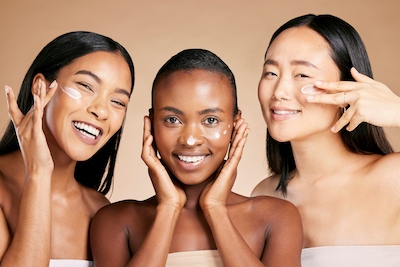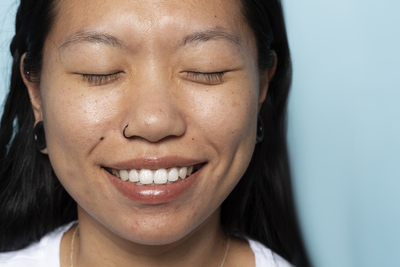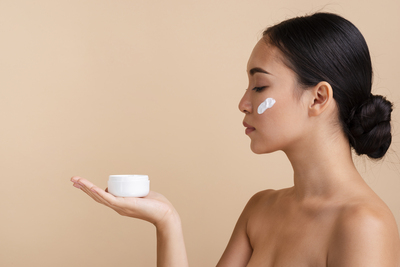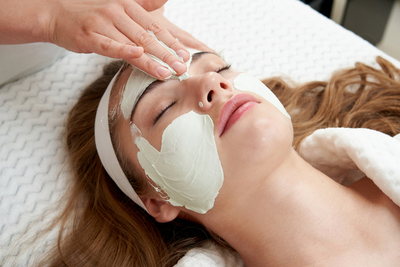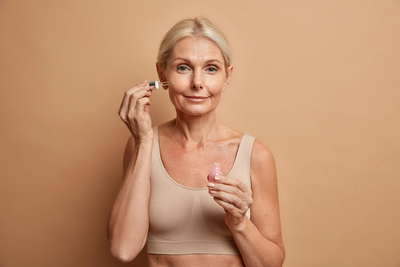Retinol Myths That May Be Ruining Your Skin
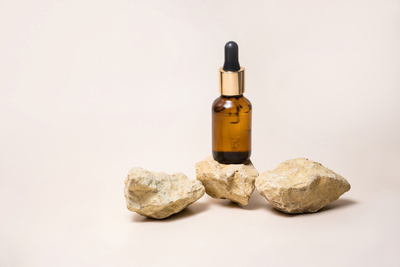
Skincare products with retinol are breaking sales records. Now, this component is just as popular as acids and vitamins. Why is it so trendy, and what do you need to know about it to achieve a positive effect? In this article, we analyze what is true and false about this ingredient.
Overall Information
Retinol is a derivative of vitamin A. It is found in many formulas, from moisturizers to masks. People of all ages use retinol in their beauty routine as it helps with both acne and the first signs of aging. However, using retinol can be tricky. Many suffer from retinol irritation and side effects, but chances are, they aren’t using this component in the right way.
Myth 1: Retinol Exfoliates Skin
The truth is, it doesn’t.
Here are the main benefits of retinol in skincare. It helps regulate cellular metabolism and prevents the accumulation of dead epidermal cells. It works as a catalyst and speeds up the process of cell renewal. Studies have shown that retinol increases the production of collagen, which gives firmness to the skin and promotes the formation of elastin.
Myth 2: You Can't Mix Retinol With Vitamin C
Well, vitamin C is a powerful antioxidant. It activates collagen production, eliminates pigmentation and reduces skin dullness. Modern manufacturers use more stable vitamin C-based formulas that can be combined with retinoids.
Can I use vitamin C with retinol? These two components can be mixed, but if your skin is too sensitive, it may react with acne or any form of irritation. Of course, you can avoid such a situation.
Let’s see how to apply retinol. If you apply a toner with vitamin C and then a cream with retinol, there should be an interval of 5-6 hours between using them.
Myth 3: Retinol Causes Sun Sensitivity
Retinoids break down when exposed to sunlight and become less effective, but this doesn’t mean that they cause sun sensitivity.
Yes, sun sensitivity may occur when you first start using retinol, but that's only because it's a strong ingredient. After several months, the skin's reaction to UV radiation returns to normal. However, SPF factors should be a must in any kind of weather.
Myth 4: Retinol Skin Thinning Is A Must
When using retinol, many notice skin flaking. Retinol breaks down the upper layer of the skin, which, in fact, is only beneficial. Pores are cleansed and natural skin renewal is activated and also, collagen is produced.
Myth 5: Skin Irritation Is A Guaranteed Side Effect
They often say that using products with retinol can cause irritation and dryness. However, like everything related to skincare, it is an individual process. If you experience unwanted reactions and retinol side effects, then use 2-3 times a week and don’t forget about hyaluronic acid - it soothes the skin quite well.
Myth 6: Results From Retinol Are Visible At Once
Although the first results of using retinol can be seen within the first eight weeks, it may take several months to achieve the best results. So it’s not an overnight process. Constant use of retinol will unlock your skin's full potential and give you the best results ever.
Can I use retinol every night? Sure. That’s how you will make the most out of it.
Myth 7: Retinol Can Be Used From Time To Time
Although retinol has been proven to help prevent visible signs of aging and improve skin quality, it is worth using this product consistently to maintain results. If you stop using retinol, your skin may gradually return to its previous appearance.
How to use retinol? You should certainly not apply it from time to time and wait for an amazing effect. Consistency is the key to success.
Myth 8: Retinol Is Beneficial For Everyone
Not everyone is recommended to use retinol. It all depends on the characteristics of your skin. How can you know the answer? Open Your Skin Profile on SkinBuddy, indicating your skin type, acne-related issues, under-eye concerns, first signs of aging and other possible concerns. Next, proceed to search for products with retinol and see which ones suit you. The whole process will only take a couple of clicks.
Try SkinBuddy to find out what works for your skin, and what doesn’t.
Scan your skincare, avoid pore-clogging or irritating ingredients, and discover smarter product matches. Open the web app or download the mobile app to get started.
or
Check Products OnlineCheck if your skincare suits your skin type, sensitivity, or acne-prone needs at skinbuddy.app and discover better options that match your routine and goals. SkinBuddy makes it easy, fast, and science-backed.
Scan to get started:

Web App (mobile only)

App Store & Google Play
Key Points
- Retinol doesn’t increase photosensitivity since it doesn’t produce harmful substances when exposed to sunlight.
- Retinol benefits in skin care are many. Skin that regularly receives retinol becomes thinner over time which makes it look fresher and brighter. Its tone becomes more even, as the top layer of dead cells is simply removed. But this process takes time.
- After retinol, be sure to use sunscreen. Then, you won’t have any unpleasant sensations.
- Retinol can be used together with AHA and BHA acids. They work in the upper layer of the skin, and retinol does what? It penetrates much deeper. Therefore, they don’t interfere with each other, but on the contrary, the acids clear the way for retinol so that it can do its job.
References
- Thinking of Starting Retinol? Here Are 5 Things Dermatologists Want You To Know. Health. https://www.health.com/retinol-faqs-dermatologists-7972089
- Retinoid Or Retinol? American Academy Of Dermatology Association. https://www.aad.org/public/everyday-care/skin-care-secrets/anti-aging/retinoid-retinol
- Does retinol deserve the hype? A Stanford dermatologist weighs in. Stanford Medicine. https://scopeblog.stanford.edu/2020/08/06/does-retinol-deserve-the-hype-a-stanford-dermatologist-weighs-in
- New Data on Retinol: Patricia Farris, MD, Shares Insights on Anti-Aging. Dermatology Times. https://www.dermatologytimes.com/view/new-data-on-retinol-patricia-farris-md-shares-insights-on-anti-aging


